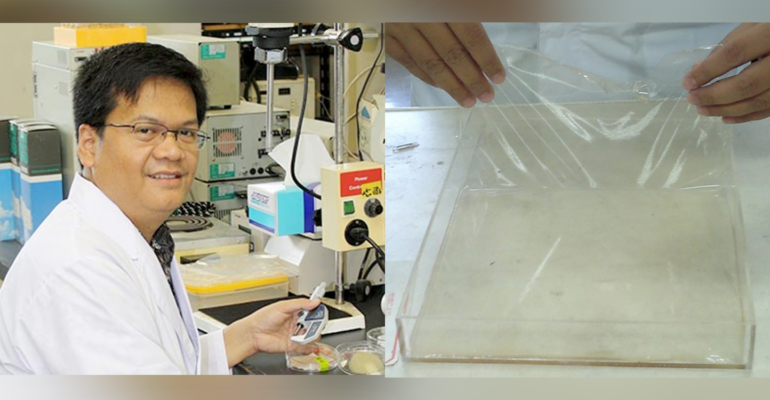Smart Food Packaging with ZnO Nanoparticles: A Revolutionary Solution from IPB University Professor

Synthetic plastics are still the most widely used packaging material. However, this disposable packaging has low recycling and degradation rates, making it a major contributor to environmental pollution.
Prof Nugraha Edhi Suyatma, Professor of IPB University from the Faculty of Agricultural Technology (Fateta) offers one solution by developing biopolymer-based plastics as alternative packaging materials. He conveyed this innovative solution in the Press Conference of Pre Scientific Oration of Professor of IPB University, Wednesday, (22/5) online.
The addition of nanotechnology such as zinc oxide nanoparticles (NP-ZnO) is used to overcome the shortcomings of biopolymers and improve their performance. Regular biopolymer packaging can be transformed into active or smart and renewable food packaging with the application of this nanotechnology.
“The addition of NP-ZnO to biopolymers will increase the mechanical strength of the packaging, barrier properties, moisture resistance, reduce water vapor permeability and UV light, provide an active function as an antimicrobial, and can be developed for smart packaging that can detect food damage and contaminants,” he explained.
The selection of NP-ZnO as a nanoreinforcing agent in biopolymers provides many advantages over other metal oxide nanoparticles. It is biocompatible, making it safe and non-toxic as food packaging, antimicrobial, easy to disperse, the cheapest price, the best UV resistance, and abundant availability of raw materials.
Interestingly, NP-ZnO also has great potential to be applied as smart packaging with nanosensors that detect the presence of food spoilage compounds. For example, H2S, volatile amine, ammonia, ethylene, histamine and ethanol. These advantages cannot be found in synthetic plastics in general.
ZnO nanoparticles have not yet been mass-produced, so it needs the support of all parties. Moreover, this smart packaging is aimed at the urgency of crisis, energy, global warming and environmental damage.
“It needs attention from the government through regulations and public education to behave more environmentally friendly so that the acceleration of NP-ZnO production and its use as smart packaging can be realized,” he added. (MW/Rz) (IAAS/Ard)



